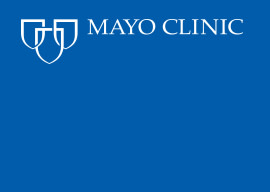On Wednesday, November 19th, Continuum hosted an executive event and panel discussion on a space that still promises huge opportunity for innovation: healthcare.
The event, Disrupting Healthcare Delivery—Lessons From Global Innovators, brought together the diverse backgrounds of four established panelists: Naomi Fried, Boston Children’s Hospital’s first Chief Innovation Officer; Sidhant Jena, co-founder and CEO of Jana Care; Dr. Sachin Jain, Chief Medical Information and Innovation officer at Merck and lecturer in health care policy at Harvard Medical School; and, via video, Dr. Devi Shetty, a cardiac surgeon and the Chairman and Founder of Narayana Health. Moderated by WBUR’s Business & Technology reporter, Curt Nickisch, the discussion centered on the current state of healthcare, and the changes that need to be made in order to create a more accessible, effective and efficient healthcare system.
The conversation began with the panelists’ perspectives on healthcare. There was a consensus among all speakers that the current state of healthcare presents significant opportunities to improve access. Dr. Jain explained that today’s systems “make it hard for people to take care of other people in the way they want and need.” The high costs of procedures and healthcare make it difficult to bring products and services to the masses. Dr. Shetty echoed Dr. Jain’s statement when he explained that we need to develop systems that decrease the overall cost of healthcare. A necessary piece of the innovation puzzle has to do with affordability and accessibility.
In terms of innovation methodology, the panelists spoke about scale—how big do changes need to be to make lasting impacts? Dr. Shetty explained that the world tends to focus on small-scale innovation, which results in increased costs. His healthcare system in India performs a large number of procedures and therefore has the ability to “procure material in bulk”. Dr. Shetty believes that “without scale, costs will not go down.”
Naomi Fried also cited the use of technology as a way to cut costs. Without replacing jobs, technology can make clinicians’ work more efficient. She also highlighted Boston Children’s FastTrack Innovation in Technology (FIT) initiative, which awards grant money to entrepreneurial researchers interested in exploring new initiatives. Recent award recipients have built mobile apps to improve the transfer of information to patients’ parents, and the group has a future-focused mission to award funding to nurses, who work on the front lines of healthcare delivery and are ripe with ideas to make a positive impact.
In today’s digital world, new tools are constantly entering consumers’ lives, in realms separate from healthcare. Dr. Fried acknowledged this changing landscape when she explained that “consumers are used to digital tools,” and that “we have to interact with patients differently.” How can we expect smartphone-fluent patients to communicate via email and fax? There must be some way to better enter into the lives of patients and address their needs and concerns. Along these lines, the panel discussed some opportunities to innovate around patient experience.
Some of this innovation is already taking place in India. With mobile healthcare solutions, patient care is digitized, which makes for a more accessible blend of healthcare with patient’s daily lives. Mr. Jena predicted that India’s mobile health solutions will gain traction globally, bringing an innovative technological approach to the US healthcare sector. Building on this theme, Dr. Shetty was convinced that “most of the innovations in health care will happen in India” because a culture of rapid iteration of new ideas already exists. Jena echoed that statement, positing that large unmet needs create opportunities for rapid test and deployment, especially when treating chronic conditions like diabetes.
So what is the future of healthcare? How do we proceed? From an innovator’s perspective, success means taking risks. Dr. Fried concluded by saying that her advice would be to take risk and to keep trying. Failure breeds innovation. And innovation, as Curt Nickisch explained in his closing remarks, is “the art of the possible.”



